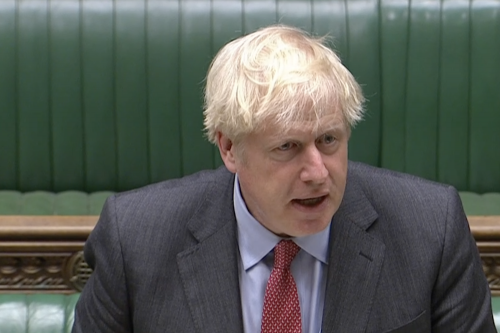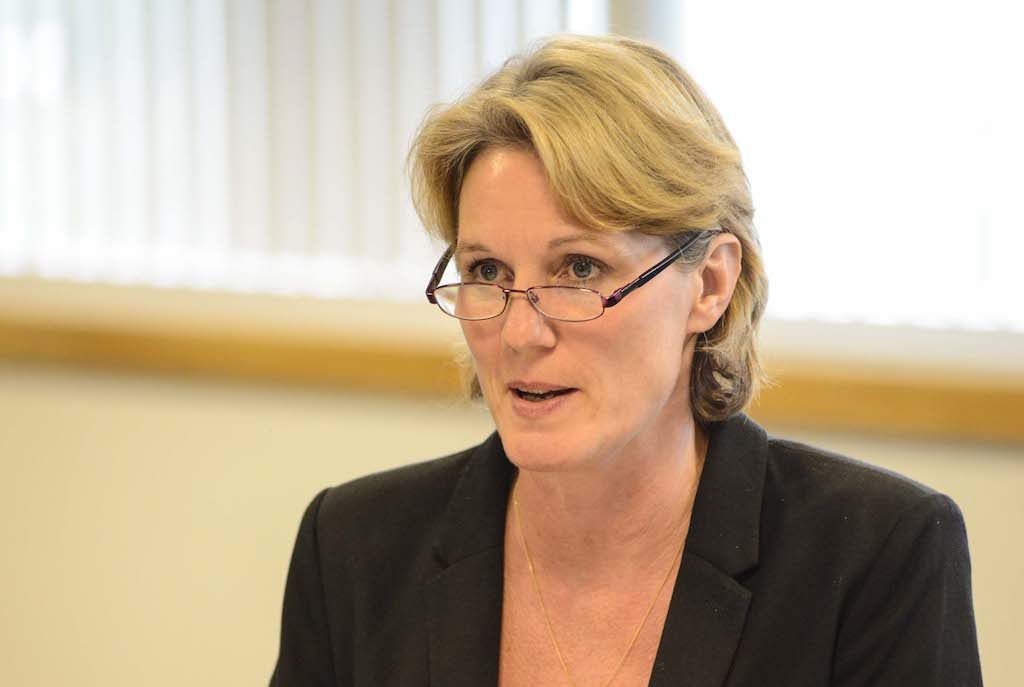Mayor ‘disappointed’ as large swathes of West Midlands placed under Tier 2 restrictions

Business leaders have called for more notice from Government after large parts of the West Midlands have been placed under the Tier 2 restrictions, meaning different households are not allowed to mix indoors.
The move was announced by Prime Minister Boris Johnson in the House of Commons on Monday afternoon. Birmingham, Sandwell, Solihull, Wolverhampton and Walsall will, from Wednesday, have to operate under the new rules.
Afterwards, a clearly frustrated West Midlands Mayor Andy Street issued a statement.
It said: “Citizens and businesses in the region will be disappointed to hear that the majority of the West Midlands will now be moving into Tier 2 and as a consequence will have stricter measures imposed.
“This is not something regional leaders supported, not what I believed would be happening following extensive conversations over recent days. The region was united, cross-party, in supporting the existing restrictions. We believed continuing these would have been the right call to protect both people’s lives and livelihoods.
“The vast majority of people across the region have been superb in helping stop the spread of coronavirus in recent months. This phenomenal effort under the current restrictions is slowing the rise of infections across the region and also causing the rate to stabilise in some areas. Overall, our relative position in the UK is much improved.”
The measures will come into effect on Wednesday.
Business leaders in Coventry and Warwickshire say firms across the region will need “clear and early” advice should any area of the city or county be moved into a new Covid-19 tier.

Louise Bennett
Louise Bennett, of the Coventry and Warwickshire Chamber of Commerce, said companies across the patch had taken unprecedented measures over recent months to make themselves Covid secure.
But, she said, new restrictions – announced by the Prime Minister – could mean much of the leisure and hospitality sector essentially going back into lockdown should all or part of the region reach the Very High alert level.
Bennett said: “The number one priority remains the safety of the public – everyone in business completely understands that.
“Here in Coventry and Warwickshire, our local authorities have worked incredibly hard over the past six months to balance the health crisis with the economic crisis and have worked with us at the Chamber and other organisations to do everything possible to support firms across the patch.
“This new tiered approach will mean businesses in the leisure and hospitality sector having to close again, should the region move to the Very High alert level.
“Obviously, we hope that is avoided but, should we reach that stage, we would urge Government to work with local authorities and businesses in the region to make sure this is communicated clearly and as early as possible to give everyone the best possible chance to prepare.
“Avoiding speculation and rumour ahead of any such announcement is something all businesses would want to avoid.
“It will be crucial that any support available is easy to access and urgently gets to the businesses that need it most.”
British Chambers of Commerce director general Adam Marshall said: “Intensified restrictions will be a real blow to business and public confidence at a delicate time for the economy.
“Firms have put hard work and precious cash into making their businesses Covid-secure, and must be allowed to operate unless there is overwhelming and clear evidence to the contrary. Businesses cannot be subjected to a rollercoaster of stop-start restrictions with no end in sight.
“Speculation and rumour have badly eroded trust between Westminster, local government, and our businesses communities. At a time when clarity and transparency are critical, local business leaders must be more deeply involved in decision-making, so that the real-world consequences for livelihoods and communities are understood. The introduction of any new restrictions must go hand-in-hand with the appropriate level of financial support, both now and into the future.
“Above all, businesses need to see an exit strategy to prevent economic paralysis. Mass testing, faster processing and proportionate financial support for those forced to self-isolate are crucial to supporting businesses and communities in the months ahead.”
Nottingham city’s COVID-19 infection rate has soared from around 12 people per 100,000 in early September to over 830 in the space of just over a month. Many of the city’s areas which are heavily populated by students have been particularly affected,
Earlier today, the University of Nottingham published new figures which revealed that over 1,500 students and 20 staff had tested positive for coronavirus. Nottingham Trent University has yet to publish its figures.
Meanwhile, it was announced today that three Nightingale hospitals, Manchester, Harrogate and Sunderland, are preparing to accept coronavirus patients following an increase in hospital admissions.
The Manchester Nightingale has capacity to treat more than 600 patients.









